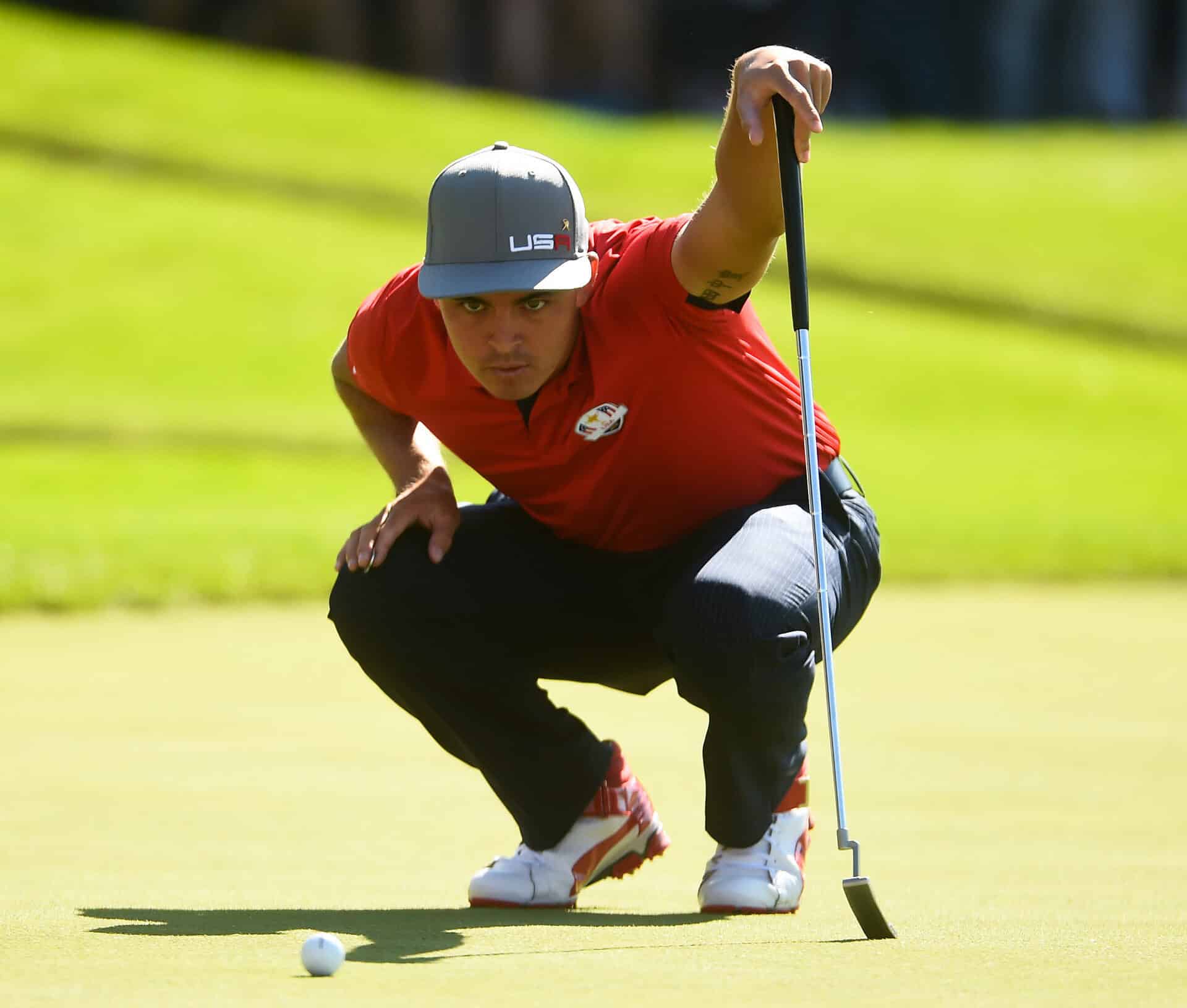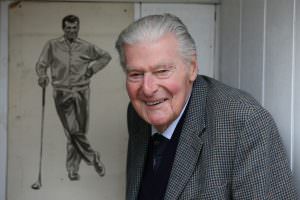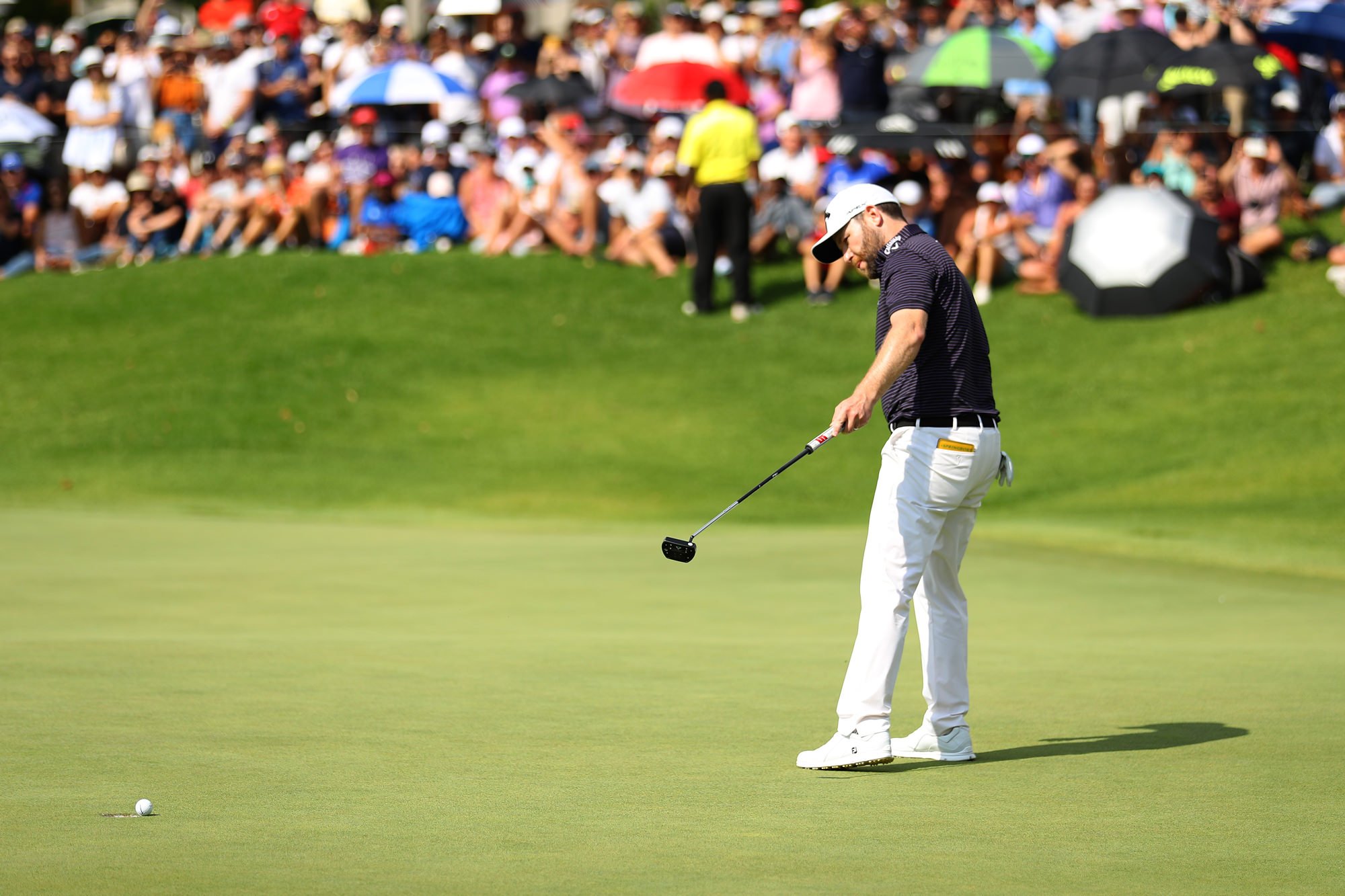
We’re always told to ‘stay in the moment’ – but what does that actually mean?
Last week I came across a thread on the European Tour’s Twitter asking players what common golfing terms or phrases annoy them. Among the responses was a video of Bryson DeChambeau and Tommy Fleetwood discussing the idea of ‘staying in the moment’.
“It’s kind of the cliche, staying in the moment, it’s what you’re supposed to do anyway,” Dechambeau said. “It’s tough for me to describe that one because I’ve always been in the moment no matter what.”
Fleetwood’s response, however, offered a different perspective: “I don’t mind them. You can only hit one shot at a time so I quite like that one. A lot of people don’t do it.”
All of this got me thinking. There are plenty of cliches in the golfing world, but do they actually work? Specifically, why do people say to stay in the moment and how do you actually do it?
How to think for golf: Staying in the moment
To really understand why you’re told to stay in the moment, you first need to understand what you should and shouldn’t be paying attention to. Generally speaking, when we are under pressure, there are three possible things we could be paying attention to. These are: the things you can’t change, the things you can only influence, and the things you can directly control.
Things you can’t change
Often, golfers will spend their time thinking about things that are out of their control. For example, other people’s scores or things that have already happened, like previous shots. The general rule of thumb here is that unless it will help you, it’s not worth your attention. No matter how much you think about other people’s scores or a three-putt on a previous hole, it’s not going to help you for your next shot.
- Related: How Thomas Edison sparked Rory into life
- Related: Don’t sacrifice your strengths to improve your weaknesses
Things you can only influence
If golfers aren’t focusing on things they can’t change, they tend to pay attention to things they can only influence. Examples I’ve seen from some of my clients include thinking about their position among the pack, or how they will play on later holes.
While this information might be of some use when it comes to planning or providing an awareness of how you need to play, relying on this information when under pressure won’t necessarily help you execute the next shot to the best of your ability.
Things you can control
The best golfers tend to direct their focus only towards what they can control. When under pressure, the stress of competition can make it difficult to make good decisions and play to the best of your ability. And one of the main reasons for getting stressed is feeling like you have a lack of control over the task at hand.
By focusing on what can be controlled (i.e., their process, their routine, the next shot), the best golfers are able to keep their mind free, minimise stress, and execute at their best.
So, now that you understand what you could pay attention to, how do you ensure that you focus on what you can control?
First, think of your focus as a timeline. On the timeline you have the past (things you can’t change), you have the future (things you can influence) and you have the now (things you can control).
- Check, challenge, continue – thinking at its best
- Golf is brutal – so why do we keep coming back for more?
- Should you go for a lesson when you’re playing well?
How to think for golf: Focusing on the now
By focusing on the now you only pay attention to what is important to you in the moment hence, ‘staying in the moment’.
Here’s a good way to stay in the now: Develop a process to go back to when your attention starts to drift. For example, by asking yourself ‘What three things do I need to do to play well?’ you ensure that you focus only on what is going to help you in the present (ie, commit to each shot, take your time and trust your swing).
A nice saying I use with my junior golfers is ‘be where your feet are’ because, in the moment, that’s all that matters.
While staying in the moment may come easily to some golfers, it can be difficult for others and is often a source of nerves or stress. So, if you find yourself on the course focusing on the past or on the future, take a second to remind yourself to be where your feet are!
About Matt Shaw
Matt Shaw is a performance psychologist at InnerDrive who has worked with highly-skilled amateurs and tour professionals. InnerDrive’s team of sport and performance psychologists have been helping elite athletes perform at the top of their game, and even win medals for Team GB at the London 2012 and Rio 2016 Olympics. On top of their one-on-one coaching and workshops for golfers, coaches and parents, they regularly produce resources to help every player improve their mental game. Visit their website or follow them on Twitter to learn more.
Andrew Wright
NCG's instruction editor. Terrible student so trying my hand at passing on some of the best advice I've never listened to. Member of Royal Troon. Favourite golfer is two-time major winner and hall of famer, Retief Goosen.









